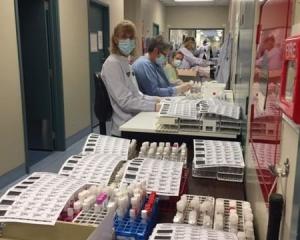
What do the candidates in the 2019 local body election stand for? The Otago Daily Times gave nominees for the Southern District Health Board the opportunity to answer some questions.
1 What should the SDHB do to reduce its deficit and live within budget?
2 What should the SDHB do to reduce waiting lists, especially for cancer treatment?
Otago
 Ross Andrews
Ross Andrews
ROSS ANDREWS

Constituency: Otago.
Age: 68.
Occupation: Semi-retired tour operator.
Question 1: I feel it is time for a complete overhaul of the non-clinical departments of the hospitals within the SDHB area. I believe there are too many doors in the non-clinical area with the word ``Manager'' on them. Can some departments be removed as not completely necessary? Can some department be amalgamated with others? I think this has to be looked at in a serious manner to see where savings can be made.
Question 2: The incoming board should consider discussing aspects of the clinical areas with the Canterbury hospital board(s) to work out what treatments or operations can be done in Dunedin and what treatments or operations can be done in Christchurch or Timaru.
As a small country with a growing (older) population I feel the days of every hospital doing pretty much everything are coming an end as the tax dollar is stretched to the limit.
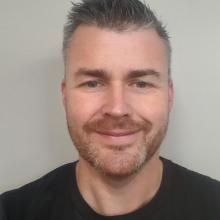 Shanon Arnold
Shanon Arnold
SHANON ARNOLD

Constituency: Otago.
Age: 44.
Occupation: Managing director/owner businesses disability sector.
Question 1:
Work with other DHBs to try to increase surgeries and decrease wait lists (generates revenue for DHB). Work on medical hubs and use technology for satellite clinics and take a team approach as many clients need multiple appointments with multiple specialists. Work towards first-time patient resolution rather than discharge and patients come back with same issues (this will cost more in short term but decrease long-term costs associated with staff etc).
Question 2:
Increase staffing and outsource/subcontract other DHBs' staff to assist where possible. Use other DHBs' staff where possible to decrease wait times and provide a better service. Change to a team environment of specialists, not a ``that's not my department'' philosophy. This one is close to home for me as have a family member with leukaemia. Have satellite clinics and more hubs for rural areas. Outsource scans or transport clients to scanners in our district.
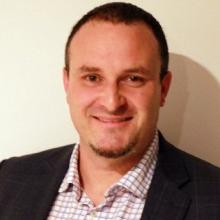 Craig Ashton
Craig Ashton
CRAIG ASHTON

Constituency: Otago.
Age: 40.
Occupation: Channel area lead - ACC.
Question 1:
The DHB should be investing more into primary and community healthcare, prevention and early intervention. This will in turn improve the efficiency and performance of acute care and specialist services and reduce the impact of future costs to our health system.
Improved planning and managing our contracts, specialist services, clinics and performance is a priority. Scaling lean management approaches to reduce red tape, over-engineered processes that stifles innovation, integration, productivity and efficiency will also help.
Question 2:
Equitable and available access to specialist services and treatments is a significant issue. Utilising our entire workforce and resources more efficiently will improve our capacity e.g. in some cases, GPs could follow up first specialist appointments if our primary and secondary health systems were truly integrated and connected. We also need to be investing in the right technology, infrastructure and operating systems to manage clinical caseloads/waitlists more effectively and improve our overall performance.
 Robert (Bob) Barlin
Robert (Bob) Barlin
ROBERT (BOB) BARLIN

Constituency: Otago.
Age: 67.
Occupation: Driver.
Question 1:
Initially, there are two primary aspects for investigation to reduce and stay in budget. Firstly, the need to establish current operational processes involving staff and materials. From a staff perspective processes need to focus on health and stress caused by overwork and/or staffing issues which result in down time and loss of financial capability. The same applies to materials supply. Both avenues need to be streamlined and cost efficiencies determined without staff deterioration.
Question 2:
All patients need recording on a national register using a triage system to determine severity of their medical condition and their place for treatment. This allows people to be moved to alternative facilities for treatment if they can. This allows other patients who cannot move to be treated locally. Specialist clinicians could also move to patients. The new cancer proposals should be given a chance to perform.
 Jason Bauchop
Jason Bauchop
JASON BAUCHOP

Constituency: Otago.
Age: 46.
Occupation: Business analyst (Southern District Health Board).
Question 1:
Many attempts have been made to return the DHB to a financially sustainable position; none have succeeded. Clearly our health system is underfunded, with a funding model that is not fit for purpose.
With the deficit and demand for services increasing, the board's focus must be on ensuring each health dollar is spent wisely.
We can't ignore the fact that behind the deficit are real people, who deserve to access healthcare in a timely manner.
Question 2:
Targeted investment is urgently needed. Patients should not be forced to wait (or go private) simply because services are underfunded.
In 2017, the DHB successfully ran weekend clinics to reduce waiting times for urology patients. This should be replicated for other medical specialities.
Cancer care is complex. To achieve a positive health outcome, early detection, diagnosis and treatment is vital. We need more cancer doctors, specialist cancer nurses and access to the latest cancer drugs.
 Ilka Beekhuis
Ilka Beekhuis
ILKA BEEKHUIS

Constituency: Otago.
Age: 39.
Occupation: Board member of the SDHB and WellSouth's Community Health Council, admin at University of Otago.
Question 1:
Missed appointments are wasting patients and doctors' time and SDHB money, and are contributing to longer waiting lists. The SDHB can improve the efficiency of its appointment scheduling system to reduce ``no-show'' appointments. All appointments should be confirmed in the patient's preferred contact method, within a timely manner so rural patients can travel to Dunedin, or better yet, change the scheduling system to allow patients to choose their preferred appointment date and time.
Question 2:
Waiting lists can be reduced by running regular after-hours and weekend surgical/treatment clinics. Increase the use of videoconferencing appointments for rural patients needing routine follow-ups with their specialists: this reduces patient transport costs, saves time for both patients and staff, and leads to improved departmental efficiencies to increase the capacity for treating more patients. GPs should be able to order cancer diagnostic testing directly rather than through a specialist, so patients can be diagnosed sooner.
 John Chambers
John Chambers
JOHN CHAMBERS

Constituency: Otago.
Age: 63.
Occupation: Emergency medicine specialist.
Question 1:
The DHB must employ in-house accountants and management who are driven by care delivery. External funding sources including ACC should be accessed and bills paid in time. The board should be vigilant for fraud which is a common in health systems. Members should decline ideas which offer false economy without patient benefit. The DHB should not pay for expensive external consultants, lawyers nor unproven multimillion-dollar IT schemes. Better care offers the best economy.
Question 2:
Healthcare demand has passed a tipping point. Shorter hospital stays have been overtaken by increasing age and complexity. Cancer treatments are better. Cancer needs to be diagnosed quickly and GP access to ultrasound, CT and MRI scans is essential. The hospitals and clinics are busier in the summer than they once were in the winter. Our hospitals need more beds and staff to keep them open. There must be better plan than cancelling essential surgery.
 Graham Clarke
Graham Clarke
GRAHAM CLARKE

Constituency: Otago.
Age: 57.
Occupation: Director and health coach.
Question 1:
We must get serious about investing in prevention rather than cure. My recipe for the DHB's own health is to focus and invest in reducing chronic disease, which is primarily about diet and lifestyle. For examples, Diabetes type 2 is perhaps the most recognisable example of a preventable and reversible disease which we choose to treat rather than cure. If we prevent or reverse this disease across our district, we will save many millions.
Question 2:
We need to look at the cause(s) of illness, and reduce their impact BEFORE people need treatment. Prevention, not cure. The waiting list challenge is caused by the growing tsunami of many chronic diseases, which are drowning our system. Until we change that trajectory, there is zero prospect of reducing waiting times - though we can shuffle the deck chairs to decide who waits and who waits more.
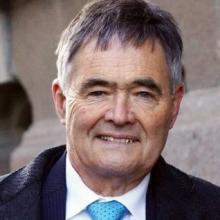 Dave Cull
Dave Cull
DAVE CULL

Constituency: Otago.
Age: 69.
Occupation: Mayor.
Question 1:
Re-orienting the model of care by putting greater focus on primary care access and treatment in the community, preventative health measures and expanded public health initiatives. In the long-term this will reduce demand for expensive hospital care and gain better health outcomes. Streamline care systems within the hospital by improving clinician communication, reducing duplication, inefficiency, consultancy costs and delays, so that patients move through the process in the most efficient and timely manner.
Question 2:
• Take on board the recommendations of recent expert reviews of the service.
• Examine best practice in comparable health systems.
• Require a culture change among clinical staff so they operate as collaborative teams rather than a hierarchy of professionals.
• Build trust and reliability in a referral, diagnostic and treatment pipeline from GPs to specialists.
GORDON DICKSON
No response received by publication deadline.
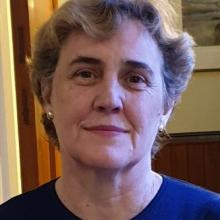 Lyndell Kelly
Lyndell Kelly
LYNDELL KELLY

Constituency: Otago.
Age: 61.
Occupation: Medical specialist in radiation oncology.
Question 1:
Cost-cutting has led to gross inefficiencies compared to other DHBs. For example, radiology wait times mean people are in hospital beds just waiting for scans. There are six layers of management with all but the CEO unable to make decisions that might cost money. There should be no more than three layers of managers who can carry out their role without being frustrated. They should know the problems and have the authority to fix them.
Question 2:
Initial expenditure is needed to update radiology diagnostic equipment and staffing. Cancers grow while we wait. The opportunity to treat a small problem is lost as it becomes a large, complex problem. Staffing levels are below safe. Overworked and stressed staff are demoralised with no action taken to address the issues. So we pay for patients to go to Christchurch and rely on expensive locums. We should adequately staff our own departments. Other DHBs can.
 Malcolm Macpherson
MALCOLM MACPHERSON
Malcolm Macpherson
MALCOLM MACPHERSON

Constituency: Otago.
Age: Declined to provide age.
Occupation: Academic mentor at Otago Polytechnic's Capable NZ.
Question 1:
If it were possible, five boards, a skilled team of commissioners, multiple ministry observers and millions in consultant's fees would already have done so. How about a budget which recognises the real cost of the services the DHB provides? Continuous improvement, efficiency and waste reduction, better ways of working, all play their part. Paying the right price (a realistic budget) is the only enduring solution. The new board should dig in hard for that.
Question 2:
Resource current in-hospital work on patient flow and care pathways; support and enhance better models of care. Money is not always the answer, but here it is. Make the hard calls about culture - to the extent it's a barrier to better outcomes. Follow Prof Barbezat's advice - listen (actually listen) to the clinicians. Make the primary and community strategy and action plan a real thing - move services out of Dunedin and into appropriate rural care.
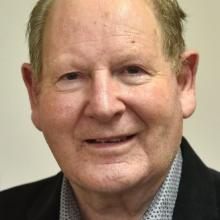 Lyndsay Rackley
Lyndsay Rackley
LYNDSAY (CRACKLEY) RACKLEY

Constituency: Otago.
Age: 75.
Occupation: Bus driver/broadcaster.
Question 1:
Get rid of the high-paid managers replacing them with a medical superintendent and qualified medical persons responsible for each department. Cut back on advertising especially the full page in the Star community newspaper. Perhaps some of the GPs could on their days and nights off spend some time working at the ED department and hospital wards.
Question 2:
I was told by a well-known person that there were waiting lists in the 1950s at Dunedin Hospital. Employ more oncologists at the two Oncology departments in Dunedin/Southland Hospitals. Open more clinics at the weekends with rosters giving the staff, say, two days off during the week days.
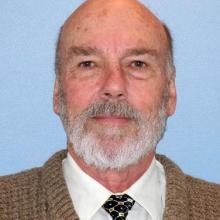 Peter Rodwell
Peter Rodwell
PETER RODWELL

Constituency: Otago.
Age: 70
Occupation: Emergency medicine specialist.
Question 1:
a) Promote wellness.
b) Promote deinstitutionalisation by the following:
• Increase outpatient availability (including urgent).
• Upskill/enable primary care and rural hospitals including easy access to specialist advice.
• Embrace, support and empower community care groups to better support people.
• Increase day surgery.
• Improve access to advanced radiology.
c) Develop and enable better interdepartmental co-operation on patient care.
d) Management to review the viability of all services.
Question 2:
Waiting lists are the easiest but an inefficient and expensive way of managing health delivery. They often result in delayed care and poor outcomes. Several US states have banned waiting lists. This requires a lot of effort from the delivery team to achieve and sustain. This would necessitate an initial ``catch-up'' period with extra services including staff. Increasing access to outpatient assessment and day case surgery will over time reduce the waiting lists.
 Jeanette Saxby
Jeanette Saxby
JEANETTE SAXBY

Constituency: Otago.
Age: 53.
Occupation: Alcohol and drug clinician.
Question 1:
The SHDB needs to concentrate on its core business to deliver public health services. Ask an invalid or sickness beneficiary how to budget as 100,000-plus New Zealanders with health problems live on less than a living wage. Financial mismanagement would end. Cap salaries. Pay a living wage to all staff. Stop outside consultants and make the hard decisions to reduce budget blowouts.
Question 2:
Create a public health campaign illustrating how many cancers are preventable through lifestyle changes. Focus on cancer prevention through better mental and physical health.
We need more early screening and for those living with cancer, they need assurance that services are accessible and affordable.
A provision of services at the right time and in the right place and with large distances, use more mobile services and digital technology. Plus having our medical records on one national system would reduce waiting times.
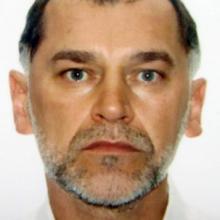 Andrew Velman.
Andrew Velman.
ANDREW VELMAN

Constituency: Otago.
Age: 59.
Occupation: Engineer.
Question 1:
Prospective statement of financial performance www.southerndhb.govt.nz/files/ 24151-20190311100917- 1552252157.pdf states gradual reduction of deficit: $14,740 to $9851 to $4883 mln $ for 2019-2022. Central government help is essential to reach a sustainable financial position of SDHB.
Question 2:
To reduce waiting list we need to provide at least four free GP visits (aiming for free primary care) annually to help early diagnosis.
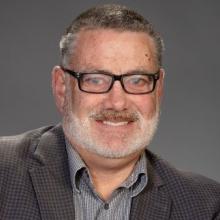 Rob Woodhouse
Rob Woodhouse
ROB WOODHOUSE

Constituency: Otago.
Age: 52
Occupation: Business manager.
Question 1:
Primarily, central government currently underfunds the Southern District Health Board given its size and geographic challenges. There also has to be a review of non-clinician roles as the SDHB is too management-heavy.
There is a $1 billion budget, yet babies are being born on the side of the road. Bowel cancer rates in the south are the highest in New Zealand, yet we have the lowest rate of colonoscopies in New Zealand.
Question 2:
Cancer treatment (early detection and treatment) is far from adequate. Greater resources need to be allocated to emergency departments, early detection units for all cancers, and coronary care. We are too far removed from international best practice. We need a patient centric model where the patient comes first - from the cradle to the grave. Patients are dying while on waiting lists - this is unacceptable. Furthermore, mental health does not wait for waiting lists.
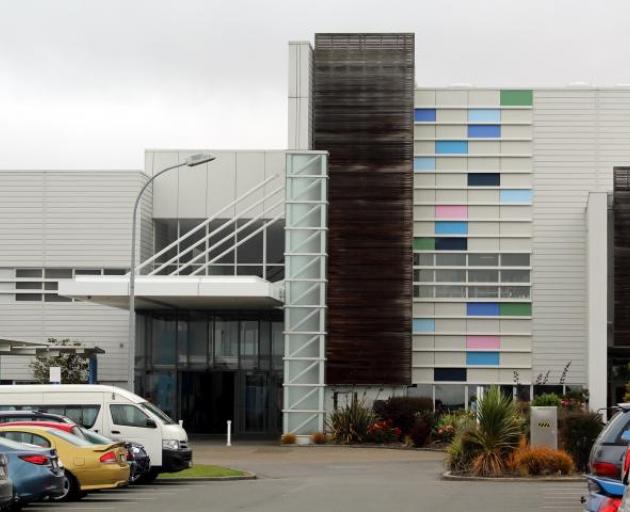
SOUTHLAND
 Neville Cook
Neville Cook
NEVILLE COOK

Constituency: Southland.
Age: Declined to provide age.
Occupation: Manager.
Question 1:
The Southern District Health Board is chronically underfunded. DHB service delivery is not just hospital services, which consume a significant amount of budget. To make the best use of the available finances, the most cost-effective approach is to target investment into primary care effort and co-ordination. Early diagnosis and treatment will lessen the pressures on hospital services. Integration of health service delivery will improve budget management while improving patient outcomes by allowing that early treatment.
Question 2:
Early diagnosis of illnesses will enable early treatment and reduce the need for secondary or tertiary care. Hopefully, the government announcement of significant investment into cancer services will produce better outcomes for patients and will allow early primary interventions where there are symptoms or suspicion of cancers. Waiting lists can be reduced if demand is targeted at the right level. Co-ordination between primary and secondary care services is essential to producing good outcomes.
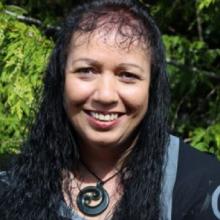 Pania Coote
Pania Coote
PANIA COOTE

Constituency: Southland.
Age: 54.
Occupation: Director of AwhiMai Consultancy, working in the area of Maori health and strategy.
Question 1:
Living in a deficit environment where there is no room for investment is not ideal. We are in an era where the ``status quo'' needs to change. There are two options, merge both primary and secondary care services, reduce duplication at all levels, streamline pathways and establish well-co-ordinated services or continue business as usual with less disruption and stop what is not working.
Question 2:
Patients have better health outcomes when diagnosed and treated earlier for cancer. It is important to streamline pathways of care, based on well-co-ordinated services to arrive at timely diagnosis and management of cancer. Therefore, improvement is needed in timeliness of referrals from the time of being seen at the GP to being diagnosed, improve co-ordination of patient care by streamlining access to different treatment and services. Remove the blockages on the pathway and system.
 Kaye Crowther
Kaye Crowther
KAYE CROWTHER

Constituency: Southland.
Age: 68.
Occupation: Trust account manager.
Question 1:
While it is important for the SDHB to stay within the allocated funding, it will be necessary to ensure that service delivery can also meet the targets and the needs of the population.
As has been evident over the past several years this will be a huge challenge for a new board.
Question 2:
There needs to be a consistent approach across both major hospitals to delivery of all surgeries especially elective. There should now be a more cohesive approach to cancer wait times. With the new Cancer Control Agency being announced and targets to be set nationally with DHBs to be held accountable. We need to ensure SDHB has the right resources to meet these targets going forward.
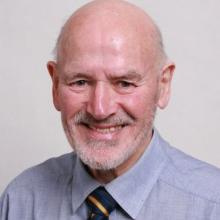 Terry King
Terry King
TERRY KING

Constituency: Southland.
Age: Declined to provide age.
Occupation: Retired.
Question 1:
We need to have a realistic financial recovery plan, face reality and lobby the Minister of Health to accept the SDHB has been seriously underfunded for some years. Fiscal sustainability was problematic for the government-appointed commissioner team. From 2015 to 2019, forecast deficit had grown from $27 million to $40 million. Questions of quality, cost-effectiveness and efficiency are increasing concerns. We need a review including significant analysis of the population-based funding formula.
Question 2:
We need to target improved access. People have a right to treatment - this should be non-negotiable. Clinicians need more autonomy because they know patients best. Cancer strikes approximately one out of every three people born in New Zealand. Establish policy to promote prevention strategies, particularly through the avoidance of known risk factors. We need to invest in cutting-edge technology. Providing more clinics, more theatre time, and amending the minimum clinical priority score for surgery.
 John Macdonald
John Macdonald
JOHN MACDONALD

Constituency: Southland.
Age: 61.
Occupation: Councillor QLDC/independent chairman.
Question 1:
There is no easy fix. Simple cost-cutting has not worked. More efficient and effective models of service need to be implemented. We need better data collection systems so better more informed decisions and analysis can be done. Are we using all our skilled people at the top of their scope? Has the culture and cost-cutting damaged the culture in the sector? Keeping people well at home is much cheaper, as hospitals are very expensive.
Question 2:
Improve communication between departments so they work as one system, prioritising those with the greatest risk/need. Look for more efficient use of resources and facilities and specialists, learn from the private sector. Utilise the private sector and their facilities to increase operating capacity.
 Roland Meyer
Roland Meyer
ROLAND MEYER

Constituency: Southland.
Age: 57.
Occupation: Doctor/specialist physician.
Question 1:
The estimated deficit is $40 million, with total funding of near $900 million. Nationally, only one DHB is not in deficit. There must be some initial investment in the system to address duplication, lack of cohesion and integration. More investment in prevention and community strategies whilst maintaining viable specialist services will be key. Focusing on these parts of the system will enable better health outcomes and thereby decrease deficits in years to come.
Questions 2:
Waiting lists and uncertainty after a referral is made are a major source of frustration and anxiety for many. Better service integration, improved referral management, and tools to enhance cohesion between primary care providers and hospital services are key. The uptake of HealthPathways must be strengthened, and patients and whanau empowered to better navigate through the health system. Services must be sized and, in cancer services and others, where necessary there needs to be investment.
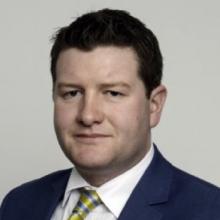 Ben Nettleton
Ben Nettleton
BEN NETTLETON

Constituency: Southland.
Age: 33.
Occupation: Lawyer/company director.
Question 1:
The board needs to be clear in what it needs to deliver and allocate limited resources accordingly. This requires strong and disciplined leadership at board level - not just in setting a budget but actively monitoring it. It also requires innovative thinking and intensive review of the financial reporting. Often budget lines roll over year to year. It sometimes needs fresh eyes to say what is this for and is it a priority against other needs?
Question 2:
The recent announcement by the Government of a cancer control agency is a start, providing a means of ensuring best practice for cancer treatment, together with measuring outcomes. In terms of waiting lists generally, the board has separate funding and delivery roles. It needs to explore how it is delivering wait-listed services and what other procurement and delivery options it may have, noting the geographic and resourcing challenges facing the Southern region.
 Benje Patterson
Benje Patterson

BENJE PATTERSON
Constituency: Southland.
Age: 32.
Occupation: Economist.
Question 1:
Deficit reductions cannot be driven by short-term cost-cutting. The Government is building a $1.4billion Dunedin hospital, but we need adequate funding after it is operational to sustainably run the building. I am not prepared to accept cutbacks at Southland Hospital as an option to plug that gap. Back office efficiencies will only get us so far. Increasing revenue to reflect the diverse services provided to a large and fast-growing region is more important.
Question 2:
Waiting list reductions in the short-run require more resources. For example, organising more weekend super-clinics using locums from around New Zealand would allow the SDHB to immediately put a dent in waiting lists. Over the long term, the SDHB needs to focus on earlier diagnosis and public health programmes for disease prevention and keeping well. These initiatives help reduce underlying demand for complex surgical procedures and ultimately lead to better health outcomes for cancer sufferers.
 Marion Poore
Marion Poore
MARION POORE

Constituency: Southland.
Age: 65.
Occupation: Public health physician, community volunteer.
Question 1:
Work with clinical and support staff to understand what drives the deficit. Response strategies should include quality improvement, stopping system level waste and procedures with no cost benefit. Ensure budgets are realistic, then implement effective financial tracking tools to monitor and respond quickly to problems. Note the impact from wage-bargaining. Prevention of chronic conditions is an essential and cost-effective measure to reduce the rising demand for healthcare services and help meet budget.
Question 2:
Waiting lists reflect rising demand for healthcare services linked to an ageing population and workforce shortages. Many chronic diseases and cancers can be prevented, so more emphasis on keeping people well is essential. Understand changing health needs in communities for appropriate service planning and facilitate support staff to help co-ordinate care and provide practical assistance in hospitals. Clinical staff should consistently use agreed clinical pathways to optimise treatment choices, with sufficient funding, equipment and facilities.
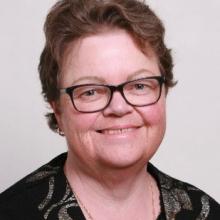 Leanne Samuel
Leanne Samuel
LEANNE SAMUEL

Constituency: Southland.
Age: 56.
Occupation: Area manager IDEA (IHC) Services, Southland.
Question 1:
SDHB must urgently reprioritise planning, funding, service delivery, and reduce bureaucracy. Focus on quality outcomes, public health/wellness, equity of access, contemporary workforce planning will ensure services are provided economically. Sustainable funding - NGOs, i.e. Maori and Pacific Island providers, disability services, PHOs/rural health for sustainability. Target inequities - to prevent horrendous health outcomes that cost both humanity and economically. Smart investment decisions for service enablers like telehealth, reduce travel burden, early diagnostics to identify/treat illnesses early.
Question 2:
Ensure critical diagnostics, i.e. radiology, efficient surgical/medical services and improved endoscopic services, i.e. colonoscopy, are provided equitably across Dunedin, Invercargill, Central Otago. Increase skilled oncology staff - Central Otago and Southland to spread the waiting list/treatment centres. Install a linear accelerator in Southland. Employ more nurse practitioners to complement the oncologists. Invest in new technology and new science to expedite service access and early diagnosis/less expensive but effective treatments, and best possible results.
 Lesley Soper
Lesley Soper
LESLEY SOPER

Constituency: Southland.
Age: 64.
Occupation: Lawyer/ACC advocate/city councillor.
Question 1:
Demand a full accounting of the DHB population-based funding formula to ensure that the SDHB has fair and equitable funding in the first place. In other words, ensuring that we are getting what we should be getting. Then governance can look at any possibilities for reducing costs through shared services (e.g. in procurement), and in such areas as locum costs and reducing greenhouse gas emissions by eliminating coal use in SDHB hospitals.
Question 2:
Explore option of holding ``super clinics'' in a range of specialities across the region. Proactively implement the Government's Cancer Action Plan, ensuring the SDHB gets its fair share of funding for new drugs, early detection and preventative measures and screening, rather than it being all soaked up in Auckland. Immediately implement the recommendations of the SDHB's own external review for bowel cancer treatment. Fundamentally, an ounce of prevention is worth a ton of treatment.






